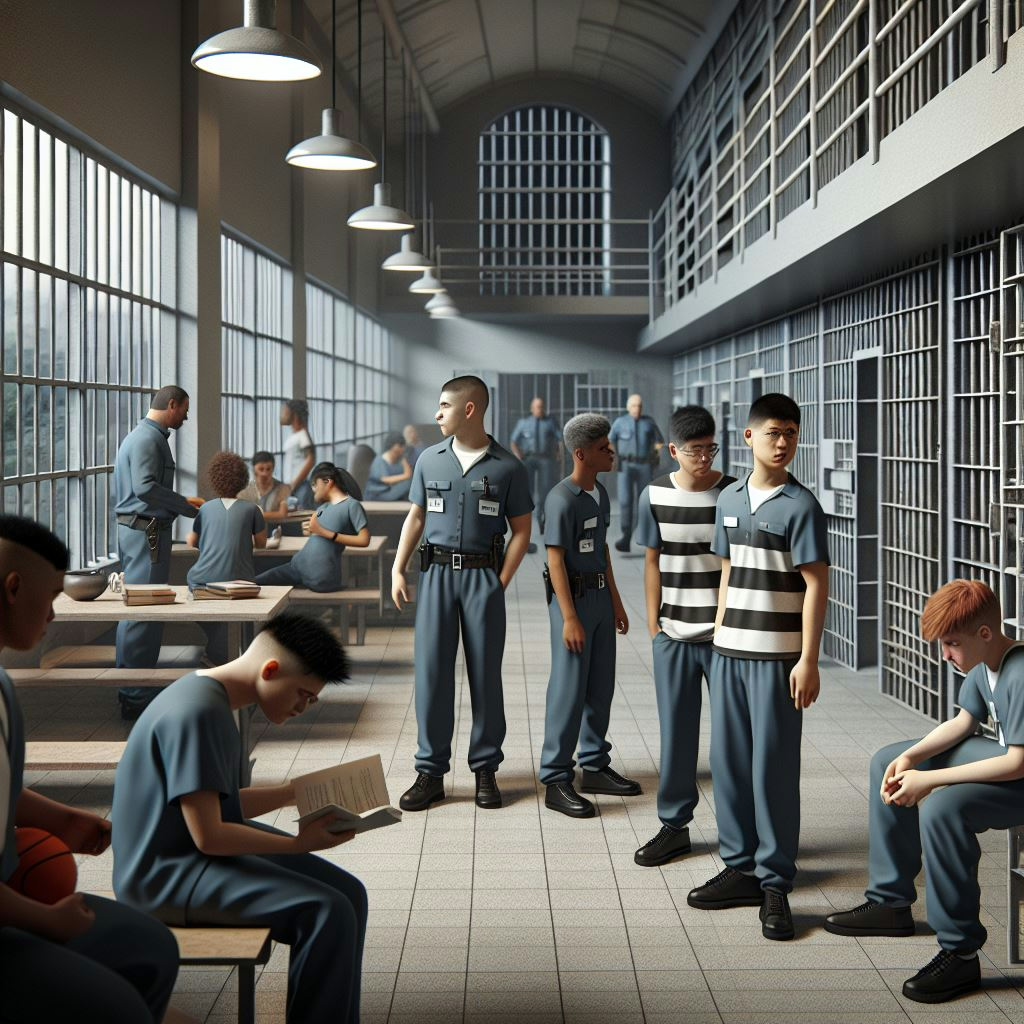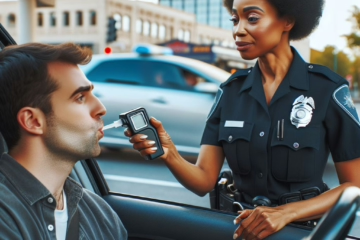The justice system in British Columbia (BC) is designed to ensure that all individuals, including minors, are treated fairly and justly. The unique needs and vulnerabilities of young people necessitate specific legal protections to safeguard their rights within this system. This article explores the legal protections available for minors in BC’s justice system, examining the rights they hold, the frameworks in place to protect them, the role of child advocates, and the challenges that remain.
Table of contents
Overview of Minors’ Rights in BC’s Justice System
Minors in British Columbia are afforded a range of rights within the justice system, reflecting both Canadian law and international conventions. The primary aim is to ensure that young individuals are treated with dignity and respect, while also recognizing their unique developmental needs. These rights include the right to legal representation, the right to privacy, and the right to be heard in proceedings that affect them. In addition, minors have the right to be informed of their rights in a manner that is age-appropriate and understandable.

The Youth Criminal Justice Act (YCJA) is a key piece of legislation that outlines the rights of young offenders in Canada, including those in BC. It emphasizes rehabilitation and reintegration, rather than punishment, as the primary goals of the youth justice system. This approach acknowledges that minors are still developing and provides them with opportunities to learn from their mistakes and become productive members of society.
Privacy is another crucial right for minors in the justice system. Their identities are often protected to prevent stigma and ensure that they can move forward without the burden of a public criminal record. This protection is vital for facilitating their successful reintegration into society and minimizing the long-term negative impacts of their involvement with the justice system.
Furthermore, minors have the right to participate in decisions affecting their lives, particularly in family law matters. This participation is facilitated through various means, including the appointment of a representative or advocate who can ensure that the minor’s views and interests are considered. This right is rooted in the recognition that minors, while not yet adults, have valuable perspectives that should inform legal decisions.
Key Legal Frameworks Safeguarding Young Offenders
The Youth Criminal Justice Act (YCJA) is the cornerstone of the legal framework protecting young offenders in BC and across Canada. Enacted in 2003, the YCJA replaces the Young Offenders Act and emphasizes a more rehabilitative approach to youth justice. The Act sets out clear guidelines for the treatment of young offenders, focusing on preventing crime through addressing the underlying causes of offending behavior and encouraging accountability and responsibility.
Under the YCJA, young offenders are subject to a distinct set of legal processes and consequences that differ from those applied to adults. The Act introduces alternative measures such as extrajudicial sanctions and community-based interventions, which aim to divert young people away from formal judicial proceedings. This approach is designed to minimize the negative impacts of formal criminal justice involvement and to support the rehabilitation and reintegration of young offenders.
Another crucial aspect of the YCJA is its emphasis on proportionality and fairness in sentencing. The Act mandates that sentences for young offenders must be proportionate to the seriousness of the offense and the degree of responsibility of the young person. This ensures that young offenders are not subjected to excessively harsh punishments and that their unique circumstances and potential for rehabilitation are considered.
In addition to the YCJA, the United Nations Convention on the Rights of the Child (UNCRC) provides a broader international framework that influences the treatment of minors in BC’s justice system. The Convention outlines various rights and protections for children, including the right to be treated with humanity and respect, the right to legal assistance, and the right to have their best interests considered in all legal proceedings. Canada, including BC, is a signatory to the UNCRC, which reinforces the commitment to upholding these principles in domestic law.
Role of Child Advocates in Legal Proceedings
Child advocates play a crucial role in ensuring that the rights and interests of minors are upheld throughout legal proceedings in BC. These professionals, often lawyers or specially trained representatives, provide a voice for minors who may not have the capacity or experience to fully articulate their needs and concerns. By advocating on behalf of young people, they help to ensure that legal processes are fair, just, and considerate of the unique circumstances faced by minors.
In criminal proceedings, child advocates are instrumental in ensuring that young offenders understand their rights and the legal process. They work to ensure that minors have access to appropriate legal representation and that their views and preferences are communicated to the court. This advocacy is essential for safeguarding the rights of young offenders and ensuring that they receive fair treatment under the law.
In family law matters, child advocates may be appointed to represent the interests of minors in cases involving custody, access, or child protection. These advocates work to ensure that the child’s best interests are at the forefront of any legal decisions and that the child’s voice is heard in proceedings that will impact their future. By providing a dedicated representative for the child, the justice system acknowledges the importance of considering the child’s perspective in these sensitive matters.
The role of child advocates extends beyond individual cases; they also contribute to broader systemic change. By identifying patterns and issues within the justice system, child advocates can advocate for policy and legislative reforms that enhance protections for minors. Their insights and expertise are invaluable in shaping a justice system that is responsive to the needs of young people and committed to upholding their rights.
Challenges and Gaps in Current Legal Protections
Despite the robust legal frameworks in place, challenges and gaps remain in the protection of minors within BC’s justice system. One significant issue is the inconsistency in the application of legal protections across different regions and courts. This inconsistency can lead to disparities in the treatment of young offenders and may result in unequal access to justice for minors, depending on where they are located.
Another challenge is the limited resources available for supporting young offenders and their families. Access to legal representation, mental health services, and rehabilitation programs can be uneven, particularly in rural or underserved areas. This lack of resources can hinder the ability of young offenders to receive the support they need to successfully reintegrate into society and avoid reoffending.
There are also concerns regarding the adequacy of current legal protections in addressing the needs of marginalized and vulnerable youth, such as Indigenous minors and those with mental health issues or disabilities. These groups may face additional barriers within the justice system, and existing legal frameworks may not fully address their specific needs and circumstances. This highlights the need for targeted interventions and culturally appropriate services that can better support these young people.
Finally, while the YCJA emphasizes rehabilitation and reintegration, there is ongoing debate about the balance between protecting public safety and providing second chances for young offenders. Some argue that the system may be too lenient in certain cases, potentially compromising public safety, while others believe that more should be done to support the rehabilitation of young offenders. This tension underscores the complexity of developing a justice system that effectively protects the rights of minors while also addressing broader societal concerns.
Exploring the legal protections for minors in BC’s justice system reveals a complex interplay of rights, frameworks, and advocacy efforts aimed at safeguarding young people. While significant progress has been made in ensuring that minors are treated fairly and justly, challenges and gaps remain. Ongoing efforts to address these issues, including enhancing resources, ensuring consistency in legal protections, and supporting marginalized youth, are essential for building a justice system that truly serves the best interests of all minors. As society continues to evolve, so too must the legal protections for its youngest members, ensuring that they are equipped to navigate the justice system with dignity and respect.
Important: Please note that the information here is not meant to be legal advice. Do not solely rely on the information given here; it is important that you consult with a lawyer regarding any legal advice. Pax Law Corp. is not responsible for any reliance on the contents of this blog post. Any faces posted on this blog post is totally AI generated and they are not intended to represent any person in the real world. Any similarities are completely coincidental.
1. What are the key rights of minors in BC’s justice system?
Minors in BC have the right to legal representation, privacy, and participation in legal proceedings that affect them. They must also be informed of their rights in an age-appropriate manner.
2. What is the Youth Criminal Justice Act (YCJA)?
The YCJA is a law that governs the treatment of young offenders in Canada, including BC. It focuses on rehabilitation and reintegration rather than punishment.
3. How does the YCJA differ from adult criminal law?
The YCJA emphasizes rehabilitation and provides alternative measures like extrajudicial sanctions for young offenders, contrasting with the harsher penalties that apply to adults.
4. Why is privacy important for minors in the justice system?
Privacy is crucial to protect minors’ identities and prevent stigma, which helps them reintegrate into society after any legal proceedings.
5. What is the role of child advocates in legal proceedings?
Child advocates represent the interests of minors, ensuring their rights are upheld and their voices are heard in legal proceedings, particularly in criminal and family law matters.
6. What protections are in place to support minors with mental health issues in BC’s justice system?
Minors with mental health issues are entitled to receive appropriate care and interventions. However, challenges remain in ensuring these protections are consistently applied.
7. How does the YCJA support rehabilitation for young offenders?
The YCJA focuses on rehabilitation by offering measures like counseling and community-based interventions rather than incarceration, recognizing the potential for young people to change.
8. What does the United Nations Convention on the Rights of the Child (UNCRC) say about minors’ rights?
The UNCRC outlines various rights for children, including the right to be treated with humanity, to have legal assistance, and for their best interests to be considered in all legal matters.
9. How does BC’s justice system ensure minors’ rights are respected in family law matters?
Minors’ rights are protected in family law through the appointment of advocates to represent their views, ensuring their best interests are prioritized in decisions related to custody and access.
10. What is the importance of age-appropriate communication for minors in the justice system?
Minors must be informed of their rights in a manner they can understand, ensuring they are fully aware of their legal standing and can participate meaningfully in their cases.
11. Are there differences in how minors are treated in urban vs. rural BC areas?
Yes, there may be disparities in access to resources and legal services, with rural areas often facing challenges in providing adequate support for young offenders.
12. What are extrajudicial sanctions in the YCJA?
Extrajudicial sanctions are alternatives to formal court proceedings for young offenders. They may include community service or restorative justice programs designed to address the underlying causes of offending behavior.
13. How does the justice system support Indigenous minors?
The justice system has measures aimed at addressing the specific needs of Indigenous minors, though there are ongoing challenges in providing culturally appropriate services.
14. What is the role of restorative justice in BC’s youth justice system?
Restorative justice focuses on repairing harm caused by offending behavior through dialogue and community involvement, offering young offenders an opportunity to make amends.
15. How are sentences determined for young offenders under the YCJA?
Sentences are determined based on the seriousness of the offense and the degree of responsibility of the young person, ensuring that punishment is proportional and fair.
16. What is the significance of legal representation for minors?
Legal representation ensures that minors have access to fair proceedings and that their rights are protected during legal processes, particularly in criminal cases.
17. Can a minor be tried as an adult in BC?
In certain cases, minors aged 14 or older may be tried as adults for serious crimes, but the YCJA requires that their age and developmental stage be taken into account during sentencing.
18. How does the BC justice system address the needs of marginalized youth?
The system is working to improve protections for marginalized groups, but challenges remain, particularly in ensuring equal access to services and legal protections for Indigenous youth and those with disabilities.
19. What is the role of the courts in ensuring minors’ rights are protected?
The courts are responsible for ensuring that minors’ rights are upheld, including their right to be heard and to receive appropriate legal representation during proceedings.
20. How does the BC justice system address the needs of minors with disabilities?
There are protections in place to support minors with disabilities, including accommodations in legal processes, though more targeted interventions are needed for this group.
21. How can minors in BC access legal aid?
Minors in BC can access legal aid services through programs designed to ensure that those who cannot afford a lawyer still have access to legal representation.
22. How does the BC justice system ensure fairness for minors from diverse backgrounds?
The system recognizes the importance of considering cultural, social, and economic factors in legal proceedings, though improvements are still needed to address systemic biases.
23. What is the purpose of youth diversion programs in BC?
Youth diversion programs aim to redirect young offenders away from the formal justice system and towards rehabilitative alternatives, such as counseling or community service.
24. What protections exist for minors in BC’s child protection cases?
Minors in child protection cases are entitled to representation and advocacy to ensure that their best interests are considered in decisions regarding custody and care.
25. How does BC’s justice system address the intersection of mental health and youth offending?
BC’s system is working to better integrate mental health support into the youth justice system, though challenges remain in providing adequate services for all young offenders.
26. Are young offenders in BC offered rehabilitation programs?
Yes, young offenders are provided with rehabilitation programs that focus on education, counseling, and community reintegration to help prevent recidivism.
27. How does BC handle youth offenders who are also victims of abuse?
BC’s justice system strives to address the needs of youth offenders who have been victims of abuse, offering therapeutic services and trauma-informed care.
28. How does the legal system in BC ensure that minors’ rights are protected during trials?
Minors’ rights are protected through legal safeguards, including access to child advocates, age-appropriate information, and tailored legal procedures to ensure fairness.
29. What challenges exist in BC’s youth justice system?
Challenges include inconsistent application of legal protections across regions, limited resources, and difficulties in supporting marginalized or vulnerable youth.
30. How does the Youth Criminal Justice Act influence sentencing for minors?
The YCJA requires that sentencing for minors be proportionate to the offense and the offender’s age, maturity, and potential for rehabilitation.
31. What is the significance of extrajudicial measures for minors in BC?
Extrajudicial measures provide alternative solutions to formal court proceedings, helping minors avoid criminal records and encouraging rehabilitation.
32. How do child advocates contribute to family law cases in BC?
Child advocates ensure that minors’ perspectives and best interests are central to decisions made in family law cases, including custody and access disputes.
33. What is the role of child protection services in BC’s justice system?
Child protection services intervene in cases of abuse or neglect, ensuring that minors are safeguarded and their best interests are prioritized in legal decisions.
34. How does the BC justice system support Indigenous youth?
Efforts are being made to provide culturally appropriate legal services to Indigenous youth, though there is room for improvement in addressing systemic inequities.



0 Comments